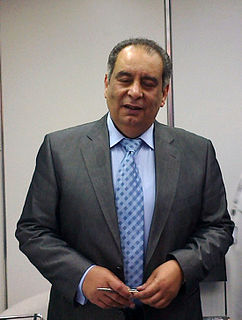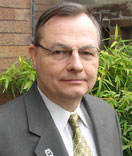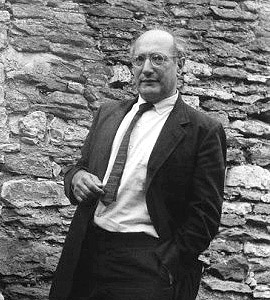A Quote by Youssef Ziedan
I analyze religious knowledge and consciousness.
Quote Topics
Related Quotes
He had made a passionate study of education, only to come, gradually, to the knowledge that education is nothing but the process of building up, gradually, a complete unit of consciousness. And each unit of consciousness is the living unit of that great social, religious, philosophic idea towards which humankind, like an organism seeking its final form, is laboriously growing.
One can study what exists and how consciousness functions; but one cannot analyze (or “prove”) existence as such, or consciousness as such. These are irreducible primaries. (An attempt to “prove” them is self-contradict ory: it is an attempt to “prove” existence by means of nonexistence, and consciousness by means of unconsciousness .)
The fact that people have religious experiences is interesting from the psychological point of view, but it does not in any way imply that there is such a thing as religious knowledge...Unless he can formulate this 'knowledge' in propositions that are empirically verifiable, we may be sure that he is deceiving himself.
Remember that consciousness is power. Consciousness is education and knowledge. Consciousness is becoming aware. It is the perfect vehicle for students. Consciousness-raising is pertinent for power, and be sure that power will not be abusively used, but used for building trust and goodwill domestically and internationally. Tomorrow's world is yours to build.
Though we [Humanists] take a strict position on what constitutes knowledge, we are not critical of the source of ideas. Often intuitive feelings, hunches, speculation, and flashes of inspiration prove to be excellent sources of novel approaches, new ways of looking at things, new discoveries, and new information. We do not disparage those ideas derived from religious experience, altered states of consciousness, or the emotions; we merely declare that testing these ideas against reality is the only way to determine their validity as knowledge.
From the standpoint of our spiritual development, it might be important for us to realize that we came from an unknown somewhere; we brought with us an attained state of consciousness; and while we are here, we are expanding that consciousness. From some perspectives, it may seem that we are making giant strides, but from the greater overview, our quantity of spiritual knowledge is smaller than Ptolemy's knowledge of astronomy!
Of course, mysticism is very hard to isolate because, given the kind of consciousness that I was sort of instructed in as religious consciousness; that borders on mysticism so closely that it's hard to know whether you qualify or not, or whether mysticism is artificially isolated when it is treated as a separate thing from experience. Obviously, mysticism can be a form of madness, but then consciousness can be a form of madness.
You are so accustomed to think of yourselves as bodies having consciousness that you just cannot imagine consciousness as having bodies. Once you realize that bodily existence is but a state of mind, a movement in consciousness, that the ocean of consciousness is infinite and eternal, and that, when in touch with consciousness, you are the witness only, you will be able to withdraw beyond consciousness altogether.
I want to put it back together now, this artistic expression that contains religious feeling. I want to investigate: What was the origin? What's happened in the human mind? Can we trace back the moment of the creation of human consciousness? And why did only humans gain consciousness, not other animals? So, evolution? I don't know whether or not I can believe evolution. Maybe we wait for another 100,000 years and then apes get consciousness.




































